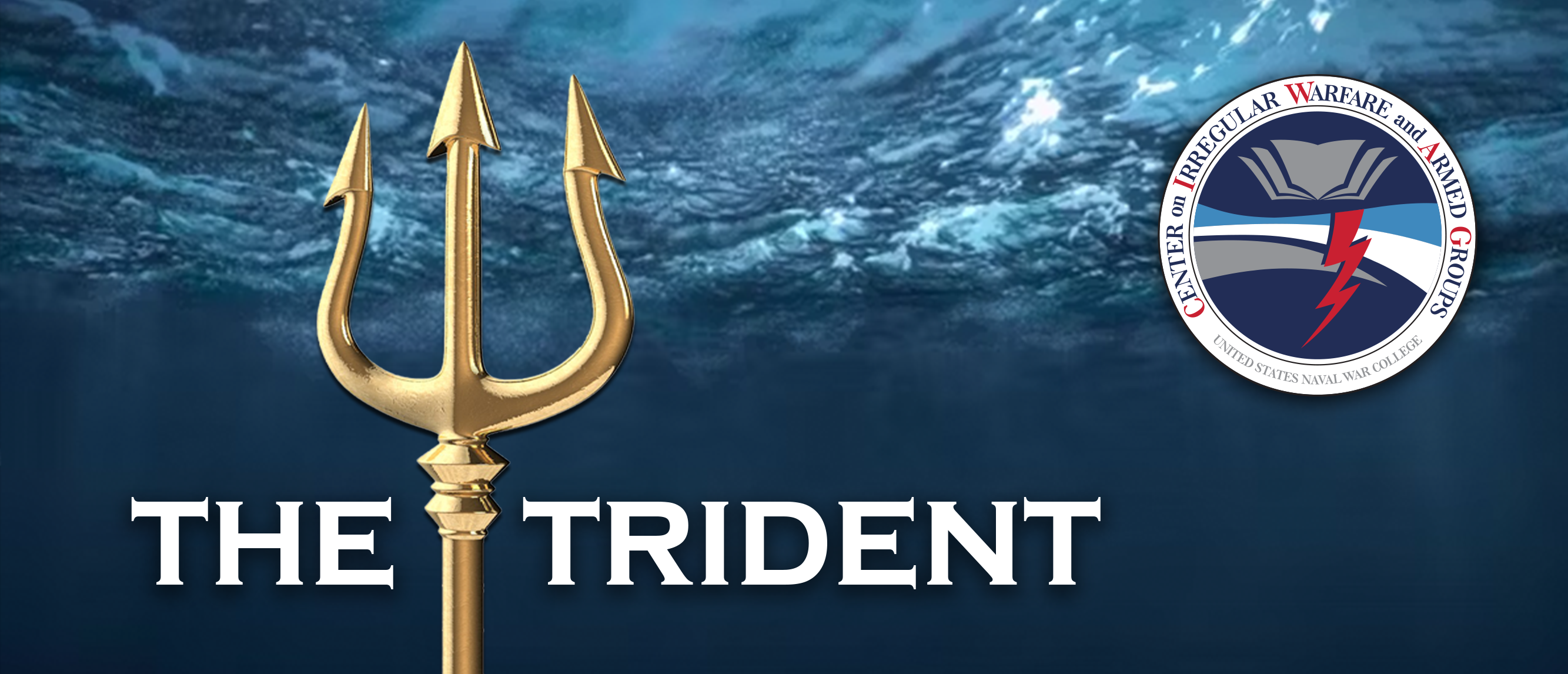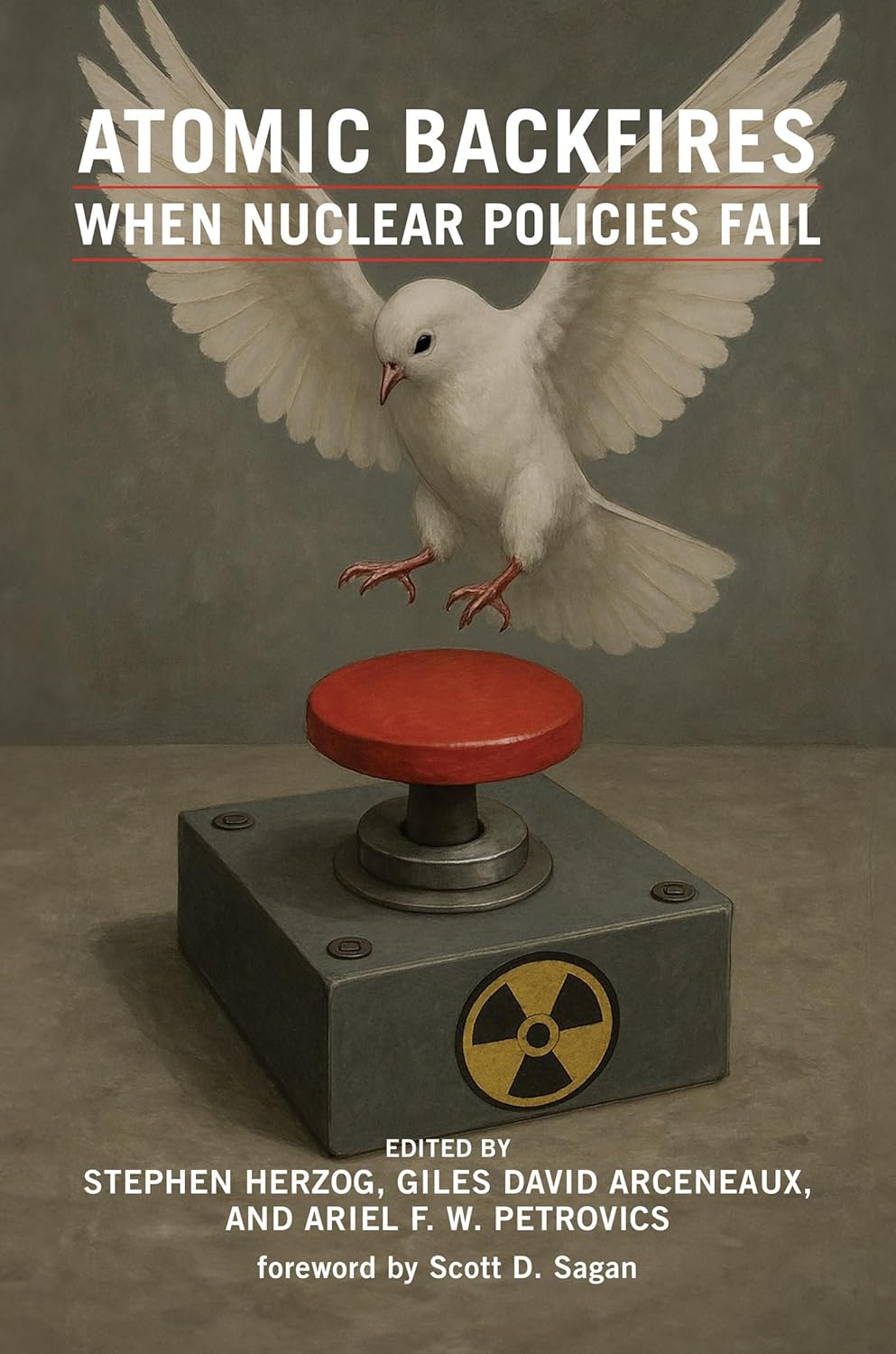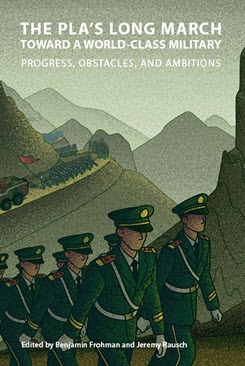
MOST RECENT PUBLISHED ARTICLES
 South Korea Is Getting Nuclear Submarines? Good!
by
South Korea Is Getting Nuclear Submarines? Good!
by
 International Law Studies ; Volume 107 (2026): Artificial Intelligence, War, and International Law
by
International Law Studies ; Volume 107 (2026): Artificial Intelligence, War, and International Law
by
 The USS Gerald R. Ford Can’t Overthrow Nicolas Maduro. It Might Not Need To
by
The USS Gerald R. Ford Can’t Overthrow Nicolas Maduro. It Might Not Need To
by
 Threading the Needle: The Logic of Conventional Coercion in Nuclear Crises
by
Threading the Needle: The Logic of Conventional Coercion in Nuclear Crises
by
 SURVIVAL, Volume 67, Issue 6 (2025) ; The Atlantic Alliance: Diverging Interests, Converging Policies
by
SURVIVAL, Volume 67, Issue 6 (2025) ; The Atlantic Alliance: Diverging Interests, Converging Policies
by
 Is China’s Defense Industry Actually Outcompeting the United States?
by
Is China’s Defense Industry Actually Outcompeting the United States?
by
 CMSI China Maritime Reports China Maritime Note No. 17: Replacement Removed: VADM/General Wang Houbin - Naval Star Turned Rocket Force Commander's Terminal Trajectory
by
CMSI China Maritime Reports China Maritime Note No. 17: Replacement Removed: VADM/General Wang Houbin - Naval Star Turned Rocket Force Commander's Terminal Trajectory
by
 Data Centers at Risk: The Fragile Core of American Power
by
Data Centers at Risk: The Fragile Core of American Power
by
 The Flash Traffic Podcast - Episode 175: War Weave Friday with Dr. Franky Matisek!
by
The Flash Traffic Podcast - Episode 175: War Weave Friday with Dr. Franky Matisek!
by
 STRATEGY MATTERS: Episode 8: Interview with John Ferling, Author of Whirlwind and Shots Heard Round the World
by
STRATEGY MATTERS: Episode 8: Interview with John Ferling, Author of Whirlwind and Shots Heard Round the World
by
 STRATEGY MATTERS: Episode 7: WWII in Europe: Between Political Visions and Operational Realities
by
STRATEGY MATTERS: Episode 7: WWII in Europe: Between Political Visions and Operational Realities
by
 STRATEGY MATTERS: Episode 6: Dilemmas of Strategic Imagination: The Ottoman Empire's Role in World War I
by
STRATEGY MATTERS: Episode 6: Dilemmas of Strategic Imagination: The Ottoman Empire's Role in World War I
by
 THE TRIDENT: Episode 20: Non-state Special Operations: Capabilities and Effects
by
THE TRIDENT: Episode 20: Non-state Special Operations: Capabilities and Effects
by
 Robodogs, laser beams and drone-zapping microwaves: The weapons that could decide the wars of the future
by
Robodogs, laser beams and drone-zapping microwaves: The weapons that could decide the wars of the future
by
 STRATEGY MATTERS: Episode 5: From Humiliation to Hegemon: The Influence of 1894-1905 on Chinese Strategy
by
STRATEGY MATTERS: Episode 5: From Humiliation to Hegemon: The Influence of 1894-1905 on Chinese Strategy
by
BOOKS AND CHAPTERS AUTHORED BY FACULTY PUBLISHED IN 2025
 USNWC Faculty Publications
USNWC Faculty Publications
 Atomic Backfires: When Nuclear Policies Fail : Chapter 2: Counterproductive Counterproliferation? Evaluating Kinetic Attacks on Nascent Nuclear Programs
by
Atomic Backfires: When Nuclear Policies Fail : Chapter 2: Counterproductive Counterproliferation? Evaluating Kinetic Attacks on Nascent Nuclear Programs
by
 BOOK CHAPTER: The PLA's Long March Toward a World-Class Military: Progress, Obstacles, and Ambitions : Chapter 8 – China’s Future World-Class Navy: Ends, Ways, Means
by
BOOK CHAPTER: The PLA's Long March Toward a World-Class Military: Progress, Obstacles, and Ambitions : Chapter 8 – China’s Future World-Class Navy: Ends, Ways, Means
by
 America's China Gamble
by
America's China Gamble
by
 BOOK CHAPTER: Understanding Irregular Warfare : CHAPTER 6: The Changing Face of Security Assistance in Europe, Africa, and Asia
by
BOOK CHAPTER: Understanding Irregular Warfare : CHAPTER 6: The Changing Face of Security Assistance in Europe, Africa, and Asia
by
 BOOK REVIEW: Waging War with Gold: National Security and the Finance Domain across the Ages
by
BOOK REVIEW: Waging War with Gold: National Security and the Finance Domain across the Ages
by
 BOOK REVIEW: Contemporary Security Issues in Africa
by
BOOK REVIEW: Contemporary Security Issues in Africa
by
 BOOK REVIEW: Command: The Twenty-First-Century General
by
BOOK REVIEW: Command: The Twenty-First-Century General
by
 BOOK REVIEW of "Training for Victory: U.S. Special Forces Advisory Operations from El Salvador to Afghanistan" by Frank K. Sobchak
by
BOOK REVIEW of "Training for Victory: U.S. Special Forces Advisory Operations from El Salvador to Afghanistan" by Frank K. Sobchak
by
Click on the following link to learn more about the Reading Room:
Click on the link for past titles that have been featured in the Reading Room:
Have a title you would like to see added to the Reading Room? Click on the link below to submit your title: